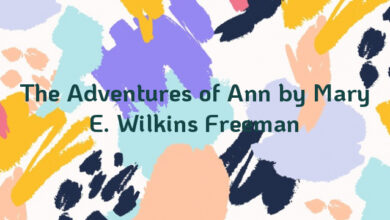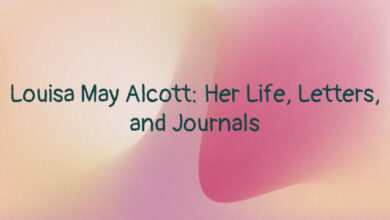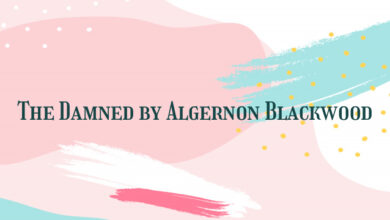
The Devil’s Dictionary by Ambrose Bierce
Originally published as The Cynic’s Word Book, Ambrose Bierce’s wickedly satirical “reference book” was retitled The Devil’s Dictionary in 1911.
Preface
The Devil’s Dictionary was begun in a weekly paper in 1881, and was continued in a desultory way at long intervals until 1906. In that year a large part of it was published in covers with the title The Cynic’s Word Book, a name which the author had not the power to reject or happiness to approve. To quote the publishers of the present work: “This more reverent title had previously been forced upon him by the religious scruples of the last newspaper in which a part of the work had appeared, with the natural consequence that when it came out in covers the country already had been flooded by its imitators with a score of ‘cynic’ books — The Cynic’s This, The Cynic’s That, and The Cynic’s Other. Most of these books were merely stupid, though some of them added the distinction of silliness. Among them, they brought the word “cynic” into disfavor so deep that any book bearing it was discredited in advance of publication. Meantime, too, some of the enterprising humorists of the country had helped themselves to such parts of the work as served their needs, and many of its definitions, anecdotes, phrases and so forth, had become more or less current in popular speech. This explanation is made, not with any pride of priority in trifles, but in simple denial of possible charges of plagiarism, which is no trifle. In merely resuming his own the author hopes to be held guiltless by those to whom the work is addressed — enlightened souls who prefer dry wines to sweet, sense to sentiment, wit to humor and clean English to slang. A conspicuous, and it is hope not unpleasant, feature of the book is its abundant illustrative quotations from eminent poets, chief of whom is that learned and ingenius cleric, Father Gassalasca Jape, S.J., whose lines bear his initials. To Father Jape’s kindly encouragement and assistance the author of the prose text is greatly indebted.
As Death was a-rising out one day,
Across Mount Camel he took his way,
Where he met a mendicant monk,
Some three or four quarters drunk,
With a holy leer and a pious grin,
Ragged and fat and as saucy as sin,
Who held out his hands and cried:
"Give, give in Charity's name, I pray.
Give in the name of the Church. O give,
Give that her holy sons may live!"
And Death replied,
Smiling long and wide:
"I'll give, holy father, I'll give thee -- a ride."
With a rattle and bang
Of his bones, he sprang
From his famous Pale Horse, with his spear;
By the neck and the foot
Seized the fellow, and put
Him astride with his face to the rear.
The Monarch laughed loud with a sound that fell
Like clods on the coffin's sounding shell:
"Ho, ho! A beggar on horseback, they say,
Will ride to the devil!" -- and _thump_
Fell the flat of his dart on the rump
Of the charger, which galloped away.
Faster and faster and faster it flew,
Till the rocks and the flocks and the trees that grew
By the road were dim and blended and blue
To the wild, wild eyes
Of the rider -- in size
Resembling a couple of blackberry pies.
Death laughed again, as a tomb might laugh
At a burial service spoiled,
And the mourners' intentions foiled
By the body erecting
Its head and objecting
To further proceedings in its behalf.
Many a year and many a day
Have passed since these events away.
The monk has long been a dusty corse,
And Death has never recovered his horse.
For the friar got hold of its tail,
And steered it within the pale
Of the monastery gray,
Where the beast was stabled and fed
With barley and oil and bread
Till fatter it grew than the fattest friar,
And so in due course was appointed Prior.
G.J.
This is a dog,
This is a cat.
This is a frog,
This is a rat.
Run, dog, mew, cat.
Jump, frog, gnaw, rat.
Elevenson
His virtues were so conspicuous that his enemies, unable to overlook them, denied them, and his friends, to whose loose lives they were a rebuke, represented them as vices. They are here commemorated by his family, who shared them.
In the earth we here prepare a
Place to lay our little Clara.
Thomas M. and Mary Frazer
P.S. -- Gabriel will raise her.
I dreamed I stood upon a hill, and, lo!
The godly multitudes walked to and fro
Beneath, in Sabbath garments fitly clad,
With pious mien, appropriately sad,
While all the church bells made a solemn din --
A fire-alarm to those who lived in sin.
Then saw I gazing thoughtfully below,
With tranquil face, upon that holy show
A tall, spare figure in a robe of white,
Whose eyes diffused a melancholy light.
"God keep you, strange," I exclaimed. "You are
No doubt (your habit shows it) from afar;
And yet I entertain the hope that you,
Like these good people, are a Christian too."
He raised his eyes and with a look so stern
It made me with a thousand blushes burn
Replied -- his manner with disdain was spiced:
"What! I a Christian? No, indeed! I'm Christ."
G.J.
A busy man complained one day:
"I get no time!" "What's that you say?"
Cried out his friend, a lazy quiz;
"You have, sir, all the time there is.
There's plenty, too, and don't you doubt it --
We're never for an hour without it."
Purzil Crofe
"Close-fisted Scotchman!" Johnson cried
To thrifty J. Macpherson;
"See me -- I'm ready to divide
With any worthy person."
Sad Jamie: "That is very true --
The boast requires no backing;
And all are worthy, sir, to you,
Who have what you are lacking."
Anita M. Bobe
O Coenobite, O coenobite,
Monastical gregarian,
You differ from the anchorite,
That solitudinarian:
With vollied prayers you wound Old Nick;
With dropping shots he makes him sick.
Quincy Giles
This commonwealth's capitol's corridors view,
So thronged with a hungry and indolent crew
Of clerks, pages, porters and all attaches
Whom rascals appoint and the populace pays
That a cat cannot slip through the thicket of shins
Nor hear its own shriek for the noise of their chins.
On clerks and on pages, and porters, and all,
Misfortune attend and disaster befall!
May life be to them a succession of hurts;
May fleas by the bushel inhabit their shirts;
May aches and diseases encamp in their bones,
Their lungs full of tubercles, bladders of stones;
May microbes, bacilli, their tissues infest,
And tapeworms securely their bowels digest;
May corn-cobs be snared without hope in their hair,
And frequent impalement their pleasure impair.
Disturbed be their dreams by the awful discourse
Of audible sofas sepulchrally hoarse,
By chairs acrobatic and wavering floors --
The mattress that kicks and the pillow that snores!
Sons of cupidity, cradled in sin!
Your criminal ranks may the death angel thin,
Avenging the friend whom I couldn't work in.
K.Q.
In controversy with the facile tongue --
That bloodless warfare of the old and young --
So seek your adversary to engage
That on himself he shall exhaust his rage,
And, like a snake that's fastened to the ground,
With his own fangs inflict the fatal wound.
You ask me how this miracle is done?
Adopt his own opinions, one by one,
And taunt him to refute them; in his wrath
He'll sweep them pitilessly from his path.
Advance then gently all you wish to prove,
Each proposition prefaced with, "As you've
So well remarked," or, "As you wisely say,
And I cannot dispute," or, "By the way,
This view of it which, better far expressed,
Runs through your argument." Then leave the rest
To him, secure that he'll perform his trust
And prove your views intelligent and just.
Conmore Apel Brune
Fiercely the battle raged and, sad to tell,
Our corporal heroically fell!
Fame from her height looked down upon the brawl
And said: "He hadn't very far to fall."
Giacomo Smith
In this small fish I take it that human wisdom is admirably
figured and symbolized; for whereas the crayfish doth move only
backward, and can have only retrospection, seeing naught but the
perils already passed, so the wisdom of man doth not enable him to
avoid the follies that beset his course, but only to apprehend
their nature afterward.
Sir James Merivale
There is a land of pure delight,
Beyond the Jordan's flood,
Where saints, apparelled all in white,
Fling back the critic's mud.
And as he legs it through the skies,
His pelt a sable hue,
He sorrows sore to recognize
The missiles that he threw.
Orrin Goof
"Be good, be good!" the sisterhood
Cry out in holy chorus,
And, to dissuade from sin, parade
Their various charms before us.
But why, O why, has ne'er an eye
Seen her of winsome manner
And youthful grace and pretty face
Flaunting the White Cross banner?
Now where's the need of speech and screed
To better our behaving?
A simpler plan for saving man
(But, first, is he worth saving?)
Is, dears, when he declines to flee
From bad thoughts that beset him,
Ignores the Law as 't were a straw,
And wants to sin -- don't let him.




